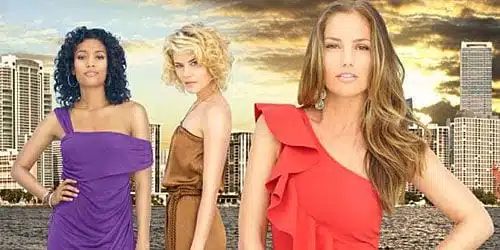
The urge to retell a good story is almost as old as the desire to tell new stories in the first place. Every play by Shakespeare is in its own way a remake. The noble rationale for remaking is to introduce a great story, even an important one, to new audiences. But more often, the reason is less noble. In current Hollywood, it appears that every property that has even an ounce of familiarity now needs to be resurrected. And not just in one form. TV shows become movies. Movies become TV shows. Everything is now deemed worthy of Broadway musical treatment.
Thus, we have the latest remake of Charlie’s Angels.
The first version of Charlie’s Angels was not a great TV show, but it occupies a recognizable spot on the cultural landscape. Few people can remember a single episode of the original series (it aired on ABC from 1976–1981, with a cast that changed, beginning with the exit of Farrah Fawcett after just one season), but everyone knows the premise. Three models/kickboxers work for a mysterious voice on a speakerphone and solve cases for those who can’t go to the police.
The viewing public has already been subjected to two movie remakes. These were not good either, but they knew it. Cameron Diaz, Drew Barrymore, and Lucy Liu played the Angels with tongues firmly planted in their cheeks. The results were occasionally fun, but largely nonsensical, which was also in the spirit of the original show.
The movies pose a particular problem for the TV version that premieres 22 September. Viewers who felt nostalgic for Charlie’s Angels have likely already gotten this out of their systems by watching the big screen installments. And so the new series isn’t so much nostalgic as it is a reboot, a return to the first series’ original — and immediately lost — focus on undercover cops. When the latest version does go for a cheesy laugh, the joke falls flat. But at the same time, the source material prevents it from becoming a “gritty” crime show, like those in the CSI franchise. It appears the show doesn’t quite know what it is.
The remake of Hawaii Five-0 is clearly the model. However, Hawaii Five-0 came back to TV as a forgotten commodity. No one remembered anything about the original show except the surf guitar theme song and the catchphrase, “Book ‘em Danno.” This made turning it into a generic cop show an easier proposition, and so far, a successful one.
Charlie’s Angels resurfaces with a lot more baggage. Not surprisingly, all the changes from the first show to this one feel more cosmetic than substantive. Hints of the old series’ distinct theme music are sprinkled throughout the pilot, but most of the soundtrack is composed of current pop hits. In all versions, the Angels have a minder named Bosley. As played by Ramon Rodriguez, he’s now a full-fledged member of the crime-fighting team, as young and photo-ready as the Angels themselves, unlike the portly middle-aged caretaker played by David Doyle, who occasionally seemed like a peeping tom who had somehow been invited inside a sorority party. Of course, neither TV version can hold a candle to the movies’ Bosleys, played by Bill Murray and Bernie Mac.
As Bosley has changed, so have the Angels. The initial team of three white girls became two white girls and a Chinese American in the films. Now, we get one white (Rachael Taylor), one black (Annie Ilonzeh), and one Latina (played by non-Latina Minka Kelly). On another show, such diversity might be considered progress. Here it feels more like someone followed up on a focus group suggestion.
Such changes don’t affect the girls as action heroes, except that the stunt choreography now looks more sophisticated. The ’70s show got some points for letting the Angels practice a bit of martial arts and wield some weapons — while wearing skimpy costumes and feathered hair. This distinction has long since been made irrelevant. It has been a long time since anyone is surprised to see pretty girls kick ass on TV, after Alias, Dark Angel, and Buffy, the Vampire Slayer (also a remake, but a good example of how to do it right). Even Hawaii Five-0 has Grace Park now.
If the old Charlie’s Angels got by on a mix of utterly retro and faux-progressive politics, the new one looks to be avoiding all of it, and looks boring already. The first episode has the girls pursuing human traffickers: the crime is treated like a run of the mill kidnapping perpetrated by villains recycled from old Miami Vice episodes. The Angels are burdened too, by awkward dialogue during the several scenes where they sit around and provide exposition. One of them has a rich dad. Another one lives with her mom. Such trivia passes for character development. Here everyone, even Bosley, seems interchangeable.
At least we can look forward to the Broadway show.

